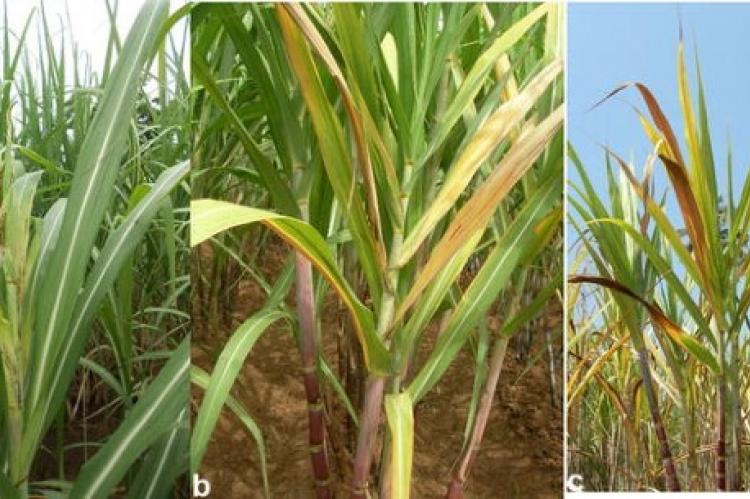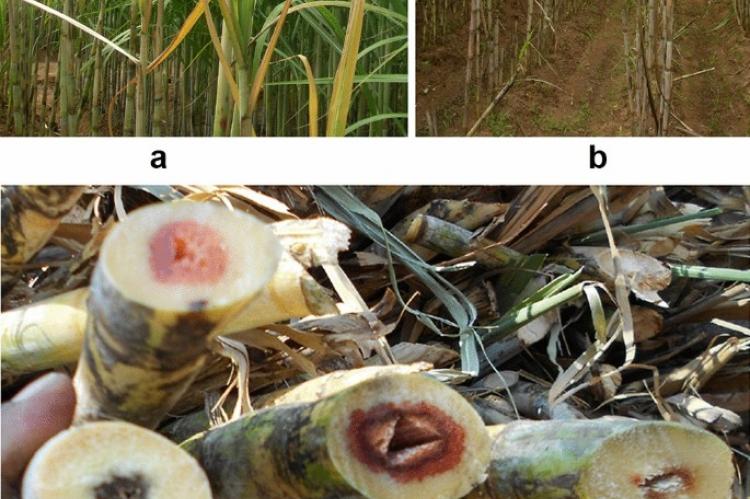Facing Fusarium Head-On: How Belize's Cane Farmers Can Combat the Fungal Threat
By: Omar Silva
Editor: National Perspective Bz DIGITAL 2024
Belize City: Wednesday 6th November 2024
As Belize’s sugarcane industry grapples with a severe outbreak of Fusarium wilt, affecting over 40,000 acres in the north, cane farmers face a critical challenge. With no "magic bullet" available, Agriculture Minister Jose Mai has emphasized the need for an integrated approach, warning that solely relying on fungicides would be impractical, costly, and environmentally harmful. Instead, innovative, sustainable solutions and individual action are becoming vital for mitigating the damage and ensuring the survival of this crucial industry.
Integrated and Sustainable Strategies
Minister Mai’s call for an integrated approach highlights that defeating Fusarium requires multiple strategies rather than a single cure. With traditional fungicides posing environmental and economic challenges, farmers are encouraged to explore alternative solutions. Here are some actionable steps that can be part of a low-cost, sustainable approach:
- Biological Controls:
Introducing beneficial organisms such as Trichoderma fungi or Bacillus subtilis bacteria could help in naturally suppressing Fusarium in the soil. These microorganisms compete with the pathogen, offering an eco-friendly way to manage disease pressure. Farmers can explore compost teas or microbial-rich organic treatments as possible DIY options that encourage beneficial microbes.
- Improving Drainage to Manage Moisture:
Fusarium spreads quickly in wet conditions, so enhancing drainage can be a practical way to contain it. Farmers may use sand or gypsum to improve soil structure and allow better water movement. Reducing standing water is essential to prevent ideal conditions for Fusarium’s spread.
- Natural Extracts with Antifungal Properties:
Neem oil and garlic extract are known for their antifungal qualities. While these are not complete solutions, applying these extracts could reduce Fusarium levels. Using such natural treatments could be part of a more holistic approach that prioritizes minimal environmental impact.
- Incorporating Organic Matter and Compost:
Healthy soil is often the first line of defense against pathogens. Enriching soil with composted organic material helps build a resilient soil ecosystem where beneficial microbes can thrive. Adding compost could gradually strengthen soil health, helping it become more resistant to pathogens like Fusarium.
- Ash and Lime for Soil Treatment:
In some cases, applying wood ash or agricultural lime can adjust soil pH, potentially making the environment less favorable for Fusarium. These treatments, however, should be used sparingly to avoid impacting overall soil quality.
- Exploring Aerial Application with Drones:
Applying fungicides or other treatments by drone could help farmers cover large areas quickly without physically moving through infected fields. This prevents the accidental spread of Fusarium on clothing or equipment and allows for more precise application, though it requires some technological investment.
Weather, Flooding, and Field Conditions: Additional Hurdles
Beyond the fungal outbreak, persistent rains and poor road conditions further complicate the sugarcane season, delaying the crop’s start. Both Minister Mai and Corozal North Representative Hugo Patt underscore that flooded fields and eroded roads hinder transportation and harvesting. Farmers, already facing production challenges, may now need to adjust their harvest schedules and factor in higher costs for field maintenance.
A Call to Action for Belizean Cane Farmers
In this critical period, Belize’s sugarcane farmers are urged to take proactive, individual initiatives to combat Fusarium while balancing economic realities. While no single method will eliminate the fungus, using a combination of biological treatments, soil amendments, and careful moisture management could reduce its impact. The resilience of Belize’s sugar industry depends on farmers' willingness to adapt to these sustainable practices.
An Opportunity for Regional Cooperation
With Fusarium threatening crops not only in Belize but across the region, there is an opportunity for regional collaboration. Neighboring countries facing similar challenges could benefit from shared knowledge and strategies, working together to control the spread of this fungal threat.
A Sustainable Path Forward
Farmers may feel they are fighting an uphill battle, but the integrated, sustainable approach laid out here offers hope. By adopting these measures, farmers can take steps to safeguard their fields, preserve their livelihoods, and support the broader agricultural community through this difficult season. While Fusarium poses a formidable challenge, Belize’s resilient farmers have the tools to face it head-on.
- Log in to post comments


